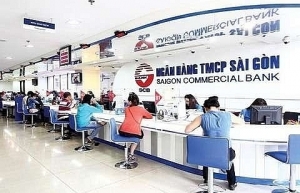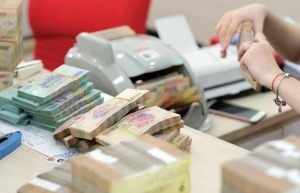Vigilant enhancements underway for cross-ownership in banking sector
The National Assembly has called for heightened vigilance and stringent measures in the banking sector, specifically targeting the pervasive issue of cross-ownership in credit activities and the intricate problem of banks’ affiliated “backyard” businesses. This move signifies a renewed commitment to bolstering regulatory oversight in the industry.
 |
| Vigilant enhancements underway for cross-ownership in banking sector, illustration photo/ Source: freepik.com |
Vietnam’s proposed amendment to the Law on Credit Institutions could see the State Bank of Vietnam (SBV) reducing the maximum ownership stakes for individuals and organisations.
Currently set at 5 and 15 per cent of charter capital respectively, the proposal suggests lowering these caps to 3 per cent for individuals and 10 per cent for organisations.
The ownership stake for related shareholder groups is also proposed to be reduced from 20 to 15 per cent. The SBV’s intention behind these changes is to prevent cross-ownership and limit the abuse of power by major shareholders.
However, experts question the effectiveness of these measures in curbing cross-ownership. Truong Thanh Duc, director of ANVI Law Firm, said the current ownership ratios are in line with international norms, noting many nations accept higher ownership stakes than Vietnam. “The issue isn’t the ownership percentage. The crux of the matter lies in ownership transparency and loan supervision. If bank owners hold 15-20 per cent of the bank’s capital, they cannot manipulate the bank. Recent cases have shown that actual ownership by bank owners can be as high as 80-90 per cent,” he said.
Dr. Le Dat Chi, head of the Finance Department at the University of Economics Ho Chi Minh City, expressed concern about the draft amendment to the Law on Credit Institutions. “The proposed regulations on ownership ratios in the revised Credit Institution Law are unlikely to fully prevent cross-ownership and cross-investments in banks. We anticipate an increase in the use of bogus companies and individuals holding shares on behalf of others, becoming more sophisticated than ever,” Chi said.
Professor Dr. Tran Ngoc Tho from the University of Economics Ho Chi Minh City argued that cross-ownership is a hidden goal, easily manipulated even with a mere 1 per cent stake in a bank. The draft law’s focus on fixed ownership percentages has continually missed its target over the years.
Echoing this sentiment, Trinh Xuan An, a member of the National Assembly Committee on National Defence and Security, views cross-ownership as sophisticated and often invisible. “The proposed tightening of ownership ratios may be an inadequate solution to an intangible problem,” he said.
The proposed changes also risk negatively impacting the banking system. If retrospective application is enforced, many significant investors may be forced to divest, particularly diminishing the attractiveness of domestic banks to foreign investors.
Instead of reducing ownership ratios, the draft law should aim to clarify the definition of “related persons” to ensure transparency.
“The root of disruptive ownership in Vietnam’s banking system lies in undisclosed and borrowed-name ownership,” stated Tran Anh Duc from law firm Allen & Overy LLP Vietnam.
The Vietnam Chamber of Commerce and Industry (VCCI), in its feedback to the SBV in August, noted that the current maximum ownership ratios in Vietnam are relatively low compared to other countries. Such low caps are not conducive to governance, as shareholders are less committed to the bank’s business.
“Furthermore, reducing ownership stakes would force existing shareholders to sell shares, violating the property rights principle protected by the Constitution,” warned the VCCI, suggesting that if ownership reduction is still pursued, it should not be applied retrospectively.
Duc from Allen & Overy remarked that the proposed ownership restrictions are ineffective against cross-ownership.
Meanwhile, they pose challenges for foreign investors looking to invest in Vietnam’s banking system and for domestic banks seeking strategic foreign shareholders.
“Foreign investors have long criticised the low ownership caps in Vietnamese banks. Further tightening these limits will only heighten their reluctance to invest. Simultaneously, reducing ownership ratios will not aid authorities in combating cross-ownership,” Duc explained.
 | SBV to end cross-ownership in Vietnamese banks The State Bank of Vietnam (SBV) has set a target to stop cross-ownership among credit institutions (CIs) by the end of 2020. |
 | SBV warns about increasing bad debts, cross-ownership, and risks of BOT projects The State Bank of Vietnam (SBV) earlier this week reported on the evaluation of the execution of Resolution No.42/2017/QH14 on piloting bad debt settlement of credit organisations at the 15th National Assembly session. |
 | “Substandard” banks failing with cross-ownership norms Amidst rising concerns over cross-ownership practices in Vietnam’s rapidly evolving banking sector, experts are calling for effective mechanisms to ensure the independence and competency of board members, stringent sanctions, and better regulations on ownership ratios to bolster corporate governance. |
What the stars mean:
★ Poor ★ ★ Promising ★★★ Good ★★★★ Very good ★★★★★ Exceptional
Related Contents
Latest News
More News
- Cashless payments hit 28 times GDP in 2025 (February 04, 2026 | 18:09)
- SSIAM and DBJ launch Japan Vietnam Capital Fund (February 04, 2026 | 15:57)
- Banks target stronger profits, credit growth in 2026 (February 04, 2026 | 15:43)
- Vietnam on path to investment-grade rating (February 03, 2026 | 13:07)
- Consumer finance sector posts sharp profit growth (February 03, 2026 | 13:05)
- Insurance market building the next chapter of protection (February 02, 2026 | 11:16)
- NAB Innovation Centre underscores Vietnam’s appeal for tech investment (January 30, 2026 | 11:16)
- Vietnam strengthens public debt management with World Bank and IMF (January 30, 2026 | 11:00)
- Corporate bond market poised for stronger growth cycle (January 28, 2026 | 17:13)
- Vietnam's IPO market on recovery trajectory (January 28, 2026 | 17:04)

 Tag:
Tag:


















 Mobile Version
Mobile Version